Speakers and Abstracts
Prof. Inès Chihi, University of Luxembourg
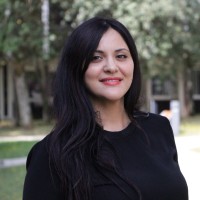
Dr. Inès Chihi is an Assistant Professor in Electrical Measurement and Sensor Technology at the University of Luxembourg, where she leads the Advanced Engineering and Smart Sensors Solutions research group. Her work focuses on smart sensors, system identification, and their applications in bioengineering, energy, and Industry 4.0. Previously a professor in Tunisia, she joined the University of Luxembourg in 2022. She holds a PhD in Electrical Engineering from the National Engineering School of Tunis and earned her “Habilitation Universitaire” in 2019.
Prof. Mohamed-Slim Alouini, King Abdullah University of Science and Technology (KAUST)

Prof. Mohamed-Slim Alouini is the Al-Khawarizmi Distinguished Professor of Electrical and Computer Engineering at KAUST and holds the UNESCO Chair on Education to Connect the Unconnected. A Fellow of IEEE and OPTICA, he specializes in wireless communication and addressing digital connectivity challenges in underserved areas. He has held faculty positions at the University of Minnesota and Texas A&M University at Qatar before joining KAUST in 2009.
Towards Connecting the Remaining 3 Billion
The transformative influence of Internet and Communication Technology (ICT) has reshaped society, touching every aspect from the economy to healthcare. As the widespread deployment of 5G continues, there is an on-going focus on the inception of the sixth generation (6G) of wireless communication systems (WCSs). Anticipated to shape the future of connectivity in the 2030s, 6G aims to deliver unparalleled communication services to meet the demands of hyper-connectivity. While densely populated urban areas have traditionally been the primary beneficiaries of WCS advancements, the vision for 6G transcends city limits. Aligned with the United Nations’ sustainability goals for 2030, an important aspect
of 6G endeavors to democratize the benefits of ICT, fostering global connectivity sustainably. This talk delves into this particular envisioned landscape of 6G, providing insights into the future of wireless communication and guiding research efforts toward sustainable, inclusive, and high-speed connectivity solutions for the future. Central to this discussion are two emerging technologies: Free Space Optics (FSO) and Non-Terrestrial Networks (NTN). These innovative solutions hold the promise of extending high-speed connectivity beyond urban hubs to underserved regions, fostering digital inclusivity and contributing to the development of remote areas. Through this exploration, we aim to convey the potential of 6G and its role in shaping a connected, sustainable future for all.
Prof. Math Bollen, Luleå University of Technology, Sweden
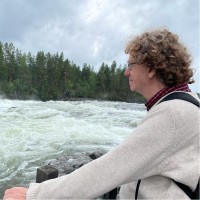
Prof. Math Bollen is a leading authority on power quality, smart grids, and renewable energy integration. A Fellow of IEEE, he has published extensively on voltage sags, signal processing, and power system reliability. His work has shaped industry standards and advanced research in power engineering. He has held positions at UMIST (UK) and STRI AB (Sweden) and has played a key role in bridging the gap between academia and industry.
The continued importance of power quality for industry in the path
towards a sustainable energy system
The main driving force in power-system research is the continued electrification of industry, transport and society as a necessary condition for a sustainable energy system. Many important questions must be resolved for this, including methods for the speedy integration of massive amounts of new production and consumption (i.e. increasing the hosting capacity of the grid). Power quality, which concerns technical details related to the correct functioning of equipment, is often overlooked in this, but is important, nonetheless. Knowledge on power quality is essential to remove certain technical barriers and resolve problems due to the integration of new production and equipment and due to introduction of smart grid technology. This keynote will emphasize the role and importance of power quality in modern power-engineering research and education and give several practical and theoretical examples to illustrate this.
Dr. Fathi Karouia, NASA Ames Research Center, University of Colorado Boulder

Dr. Fathi Karouia is a Senior Research Scientist specializing in space biology and astronaut health. With over 20 years of experience, he has conducted over 35 experiments aboard the International Space Station, advancing research in microgravity and cosmic radiation effects. He is also a Research Faculty member at the University of Colorado Boulder, where he focuses on space-based biotechnology solutions for healthcare and sustainability on Earth.
From the Blue Planet to the Stars: Advancing Humanity Through Space Exploration
Space exploration has long captured the imagination of humanity, but its real value extends far beyond dreams of interplanetary travel. The technologies and insights developed through space science have driven advancements across industries, from manufacturing and healthcare to energy and communication. This keynote will explore how the space sector creates tangible benefits for Earth, addressing pressing global challenges like sustainability, health, and resource management. In addition, as humanity aspires to become a multi-planetary species, the presentation will highlight the cutting-edge research and innovation needed to overcome the unique challenges of living and thriving beyond Earth. From in-space manufacturing and closed-loop life support systems to biological advancements for resilience in extreme environments, these breakthroughs have profound implications for both space exploration and terrestrial applications. Join this inspiring journey to uncover the extraordinary potential of space to shape a sustainable and inclusive future for our planet and beyond.
Prof. Olfa Kanoun, TU Chemnitz, Germany
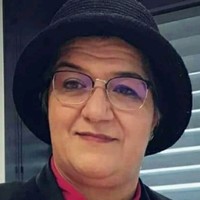
Prof. Olfa Kanoun is an expert in electrical measurement, sensors, and energy harvesting. She has pioneered advancements in impedance spectroscopy and flexible nanocomposite sensors, with applications in battery diagnostics and bioengineering. A senior IEEE member, she has held leadership roles in professional organizations, including IEEE’s Instrumentation and Measurement Society. She has authored several books and numerous research papers, contributing significantly to the field of sensor technology.
Nanotechnology-Enhanced Sustainable Sensors for Next-Generation Industries
The speech explores the transformative potential of nanotechnology in the development of advanced, eco-friendly sensors. These sensors are designed to meet the evolving needs of next-generation industries by offering high precision, efficiency, and sustainability. The speaker highlights the integration of nanomaterials to create innovative, cost-effective solutions that enhance the performance and longevity of sensors, contributing to smarter, more sustainable industrial processes and environmental monitoring.
Thaddeus Anim-Somuah, Global Senior Manager Sustainability, Philips

Thaddeus Anim-Somuah is a sustainability expert with extensive experience in manufacturing and decarbonization strategies. He has worked at global corporations such as Cargill, P&G, and Croda, where he led emissions reduction initiatives. He currently drives circular economy practices in manufacturing at Philips. Recognized as a Forbes 30 Under 30 honoree and one of the Dutch Financial Times’ Top 50 Promising Talents, he also holds leadership roles in sustainability-focused organizations.
Sustainability in Healthcare Technology Manufacturing
Thaddeus will discuss his personal experience and vision on creating sustainability in action. In addition, there will be a case study of how sustainable manufacturing can be achieved for developing vision, integrating sustainability into strategy and executing sustainability as an integral part of both projects and everyday operations.
Moderator
Marc Jacobs, Managing Partner, The Culture Factor Belux, Chairman, Molecular Plasma Group
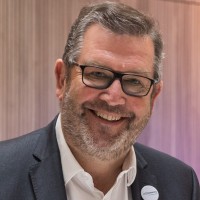
Marc Jacobs is an expert in intercultural management and organizational culture, specializing in leveraging cultural diversity for business success. As Managing Partner at The Culture Factor Belux, he builds on the research of Prof. Geert Hofstede to help organizations navigate global business challenges. He is the co-author of Negotiate Like a Local, a practical guide to intercultural negotiation, featured by London Business School and published in multiple languages. Additionally, as Chairman of Molecular Plasma Group, he supports eco-friendly surface functionalization technologies, replacing toxic chemical-based systems across industries.
Panelists
Alain Schumacher, Chief Technology Officer, IEE S.A.
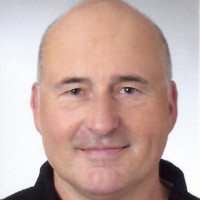
Dr. Alain Schumacher is the Chief Technology Officer at IEE S.A., with over 20 years of experience driving innovation in material sciences and technology. He has played a key role in advancing R&D within the automotive and sensor industries, focusing on printed electronics and smart sensing solutions. Beyond his work at IEE, Alain is actively involved in national and international organizations, including his role as Chairman of the Board of Director of the OE-A(Organic and Printed Electronics Association). He holds a PhD in Physics from the University of Kaiserslautern, Germany. Fluent in German, French, Luxembourgish, and English, he is passionate about cycling, traveling, reading, and racket sports.
Dr. Klaus Hecker, Managing Director, OE-A (Organic and Printed Electronics Association), VDMA
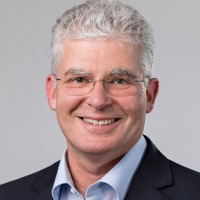
Dr. Klaus Hecker is the Managing Director of the OE-A (Organic and Printed Electronics Association) within VDMA. Since 2004, he has been leading initiatives to advance the development and commercialization of organic and printed electronics. Prior to joining VDMA in 2003, he managed projects in flat panel display and microtechnology research at the Institute for Microtechnology Mainz (IMM). Dr. Hecker holds a PhD in Experimental Solid-State Physics from the University of Cologne.
Prof. Marie-Hélène Jobin, Vice-Rector for Partnerships and International Relations,
University of Luxembourg
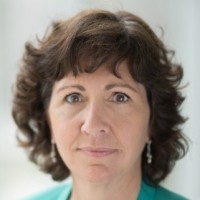
Prof. Marie-Hélène Jobin has served as Vice-Rector for Partnerships and International Relations at the University of Luxembourg since June 15, 2023. In this role, she leads the university’s international strategy, knowledge and technology transfer, and societal outreach. She oversees the Office for Partnership, Knowledge and Technology Transfer, the
International Relations Office, and the Entrepreneurship Programme and Incubator. With extensive experience in academic leadership and global collaboration, Prof. Jobin plays a key role in fostering innovation and strategic partnerships.
Sebastien Wiertz, General Manager at Paul Wurth InCub
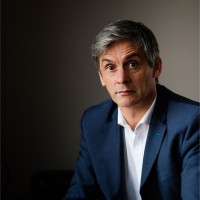
Sebastien Wiertz has nearly 30 years of experience in engineering within the steel industry. He currently serves as the General Manager at Paul Wurth InCub and the Assistant Vice President at Paul Wurth. His passion for innovation and knowledge management drives his career and fuels his commitment to fostering an open innovation culture.